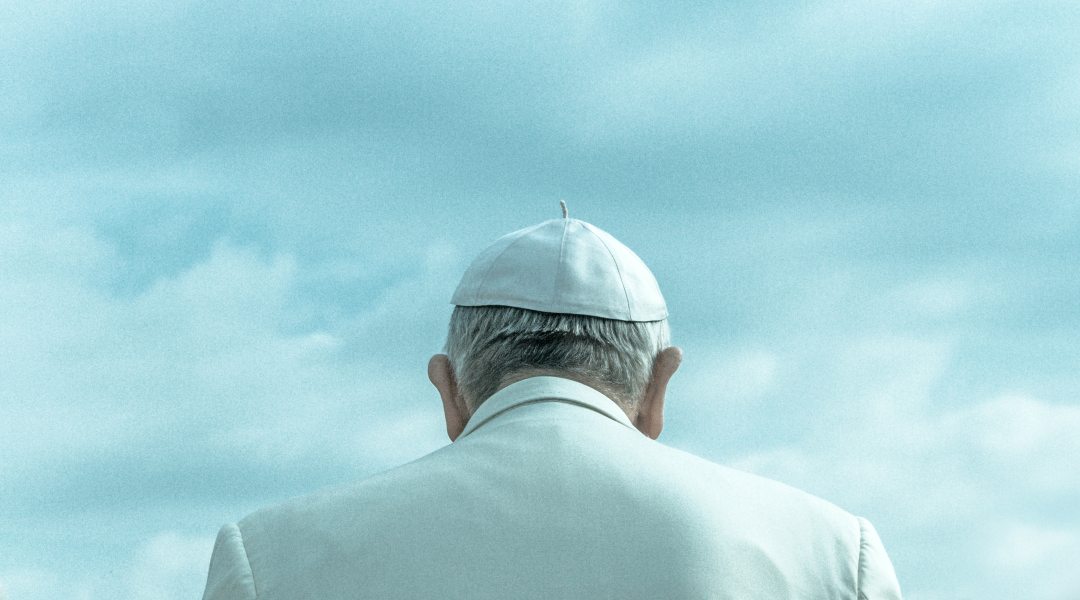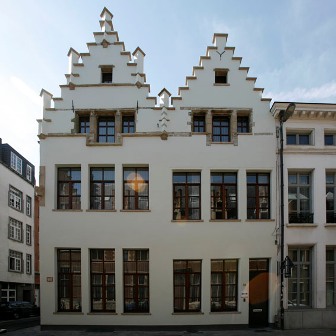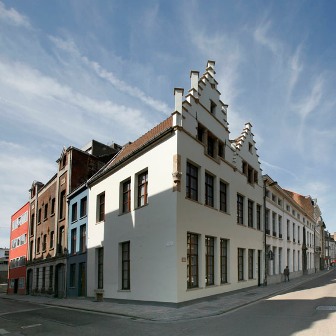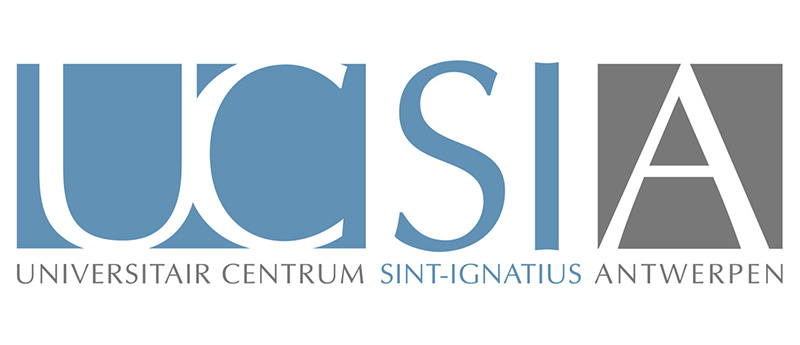
Blog
Paus Franciscus roept op tot reflectie over het “leven na de pandemie”
Naar aanleiding van Pasen schreef paus Franciscus een brief aan de sociale bewegingen en organisaties die de samenleving vandaag, tijdens het gevecht tegen COVID-19, overeind houden. Hij roept hierin op om aan het einde van deze crisis niet te hervallen in de routines van voorheen, maar ons de vraag te stellen hoe het anders kan. Hoe kunnen we de mens en de aarde centraal stellen in plaats van het grote geld?
We delen zijn woorden graag met jou, maar kijken ook uit naar jouw inzichten. Onderaan deze pagina kan je daarom jouw bedenkingen bij het lezen van dit stuk delen. Veel lees- en/of schrijfplezier!
To our brothers and sisters of popular movements and organizations
Dear Friends,
I often recall our previous meetings: two at the Vatican and one in Santa Cruz de la Sierra, and I must tell you that this “souvenir” warms my heart. It brings me closer to you, and helps me re-live so many dialogues we had during those times. I think of all the beautiful projects that emerged from those conversations and took shape and have become reality. Now, in the midst of this pandemic, I think of you in a special way and wish to express my closeness to you.
In these days of great anxiety and hardship, many have used war-like metaphors to refer to the pandemic we are experiencing. If the struggle against COVID-19 is a war, then you are truly an invisible army, fighting in the most dangerous trenches; an army whose only weapons are solidarity, hope, and community spirit, all revitalizing at a time when no one can save themselves alone.
“As I told you in our meetings, to me you are social poets because, from the forgotten peripheries where you live, you create admirable solutions for the most pressing problems afflicting the marginalized.”
I know that you nearly never receive the recognition that you deserve, because you are truly invisible to the system. Market solutions do not reach the peripheries, and State protection is hardly visible there. Nor do you have the resources to substitute for its functioning. You are looked upon with suspicion when through community organization you try to move beyond philanthropy or when, instead of resigning and hoping to catch some crumbs that fall from the table of economic power, you claim your rights. You often feel rage and powerlessness at the sight of persistent inequalities and when any excuse at all is sufficient for maintaining those privileges. Nevertheless, you do not resign yourselves to complaining: you roll up your sleeves and keep working for your families, your communities, and the common good. Your resilience helps me, challenges me, and teaches me a great deal.
I think of all the people, especially women, who multiply loaves of bread in soup kitchens: two onions and a package of rice make up a delicious stew for hundreds of children. I think of the sick, I think of the elderly. They never appear in the news, nor do small farmers and their families who work hard to produce healthy food without destroying nature, without hoarding, without exploiting people’s needs. I want you to know that our Heavenly Father watches over you, values you, appreciates you, and supports you in your commitment.
How difficult it is to stay at home for those who live in tiny, ramshackle dwellings, or for the homeless! How difficult it is for migrants, those who are deprived of freedom, and those in rehabilitation from an addiction. You are there shoulder to shoulder with them, helping them to make things less difficult, less painful. I congratulate and thank you with all my heart.
My hope is that governments understand that technocratic paradigms (whether state-centered or market-driven) are not enough to address this crisis or the other great problems affecting humankind. Now more than ever, persons, communities and peoples must be put at the centre, united to heal, to care and to share.
I know that you have been excluded from the benefits of globalization. You do not enjoy the superficial pleasures that anesthetize so many consciences, yet you always suffer from the harm they produce. The ills that afflict everyone hit you twice as hard. Many of you live from day to day, without any type of legal guarantee to protect you. Street vendors, recyclers, carnies, small farmers, construction workers, dressmakers, the different kinds of caregivers: you who are informal, working on your own or in the grassroots economy, you have no steady income to get you through this hard time … and the lockdowns are becoming unbearable.
“This may be the time to consider a universal basic wage which would acknowledge and dignify the noble, essential tasks you carry out. It would ensure and concretely achieve the ideal, at once so human and so Christian, of no worker without rights.”
Moreover, I urge you to reflect on “life after the pandemic”, for while this storm shall pass, its grave consequences are already being felt. You are not helpless. You have the culture, the method, and most of all, the wisdom that are kneaded with the leaven of feeling the suffering of others as your own. I want all of us to think about the project of integral human development that we long for and that is based on the central role and initiative of the people in all their diversity, as well as on universal access to those three Ts that you defend: Trabajo (work), Techo (housing), and Tierra (land and food).
“I hope that this time of danger will free us from operating on automatic pilot, shake our sleepy consciences and allow a humanist and ecological conversion that puts an end to the idolatry of money and places human life and dignity at the centre.”
Our civilization — so competitive, so individualistic, with its frenetic rhythms of production and consumption, its extravagant luxuries, its disproportionate profits for just a few — needs to downshift, take stock, and renew itself.
You are the indispensable builders of this change that can no longer be put off. Moreover, when you testify that to change is possible, your voice is authoritative. You have known crises and hardships … that you manage to transform — with modesty, dignity, commitment, hard work and solidarity — into a promise of life for your families and your communities.
Stand firm in your struggle and care for each other as brothers and sisters. I pray for you, I pray with you. I want to ask God our Father to bless you, to fill you with his love, and to defend you on this path, giving you the strength that keeps us standing tall and that never disappoints: hope. Please pray for me, because I need it too.
Fraternally,
Francesco
Vatican City, Easter Sunday, 12 April 2020
bron: Avvenire.it
We lezen graag jouw bemerkingen bij deze brief!
We respecteren ieders mening, maar irrelevante, ongepaste en onbeschaafde commentaren zullen niet worden gepubliceerd.
3 Comments
Submit a Comment

UCSIA
Koningstraat 2
B-2000 Antwerpen
info@ucsia.be
Tel. +32 (0)3 265 49 60
Voorlopige locatie tijdens de renovatiewerken:
Blindestraat 14, 2000 Antwerpen


Merkwaardig: net op het moment dat dit bericht op mijn smartphone scherm kwam, begonnen de kerkklokken te luiden en begonnen mijn joodse medeburgers te bidden. Laat dit een oproep zijn om vanuit een goddelijk vertrouwen de mens centraal te stellen.
Over de suggestie om een “basic universal wage” (universeel vervangingsinkomen, maar dan voor de actieve bevolking als geheel, werkzaam thuis, in de (mantel)zorg, in formele of informele tewerkstelling of als zelfstandige?), zie mijn reactie hier:
https://www.mo.be/de-ontwikkelaars/na-corona-een-wereld-met-meer-sociale-bescherming
Een aantal landen bewegen duidelijk in de richting van meer sociale bescherming, en daarbij werkt de huidige crisis als aha-moment, maar voor een aantal andere landen is zoiets veel te ver gegrepen. Alvast in dat opzicht zal “universeel” althans op korte en middellange termijn een wensdroom moeten blijven.
Sterk punt van dit pleidooi is zijn onvermoeibare inzet om onzichtbare mensen zichtbaar te maken, gedreven om altijd oog te hebben voor de waarden van delen, gerechtigheid en zorg die op zoveel plaatsen vorm krijgt en waar onderlinge afhankelijkheid geen nieuwe les is maar pure noodzaak. Wat me aanspreekt is dat hij de rijken erbij betrekt en aanspreekt op hun gedrag en hun verantwoordelijkheid. Hij maakt ook hen zichtbaar. In Nederlandse kerken ontbreekt dit nog wel eens. De rijken worden op hun compassie voor armen (anderen) aangesproken maar minder vaak op hun eigen leefstijl. Het zit wel in diakonaat, maar weinig in de liturgie. Een zeldzaam voorbeeld van aanspraak van rijken zit in een lied van Huub Oosterhuis, in zijn lied ‘de tafel der armen’. Na een poëtische schets van de gaven van de aarde, als bestemd voor de tafel der armen, schrijft hij: “Maar wie niets hebben, wie zal hen hier aan deelgeven? En die in weelde leven en van niets weten, wie zal hen naar gerechtigheid doen verlangen?” Muzikaal hoor ik hier altijd dat er een stilte blijft hangen (al wijkt die stilte niet zichtbaar af van andere momenten in het lied). De vraag die hij erop laat volgen is: “Aanschijn der aarde, wie zal jou vernieuwen?” Dit hele lied klinkt voor mij als antifoon bij deze brief.